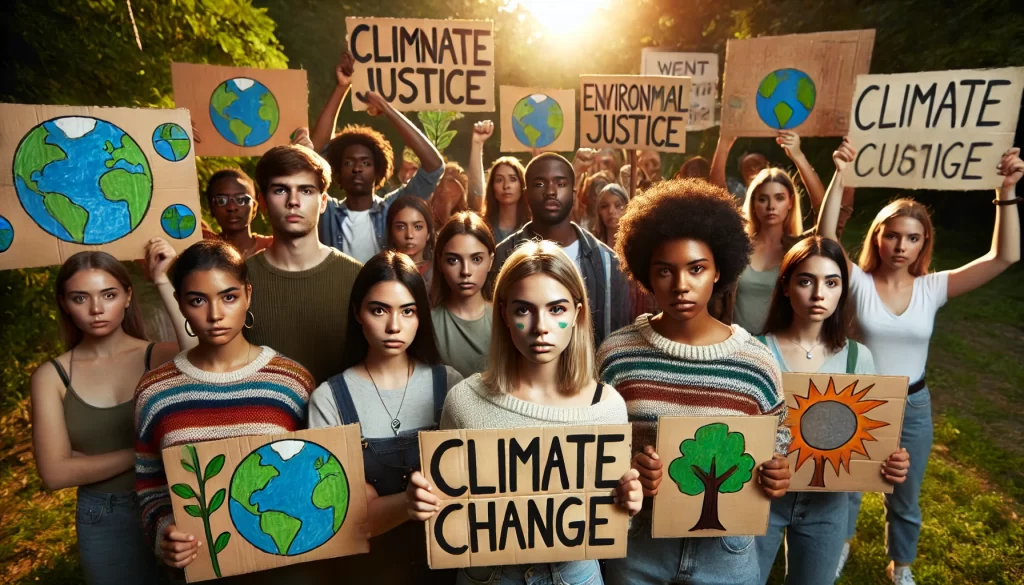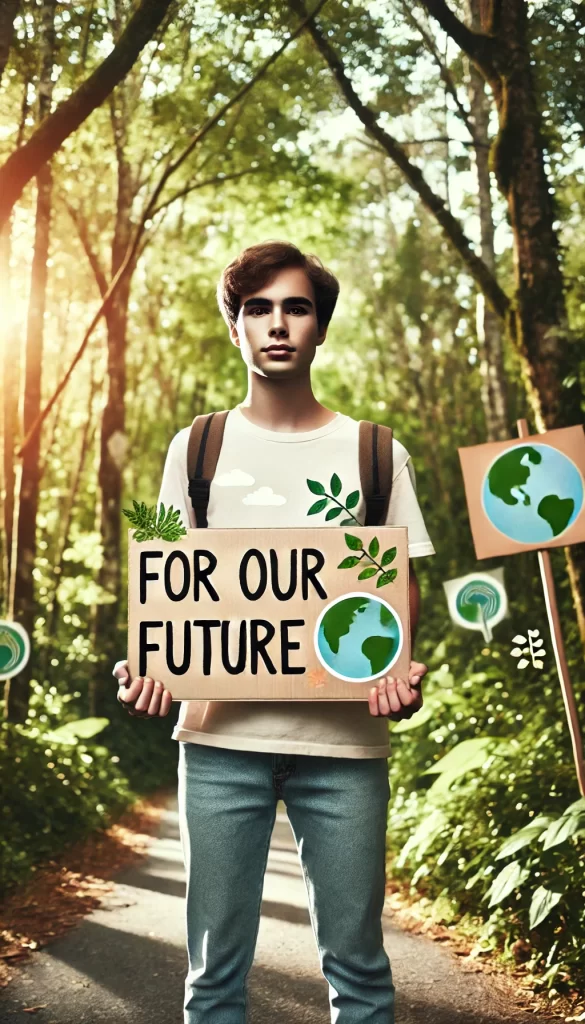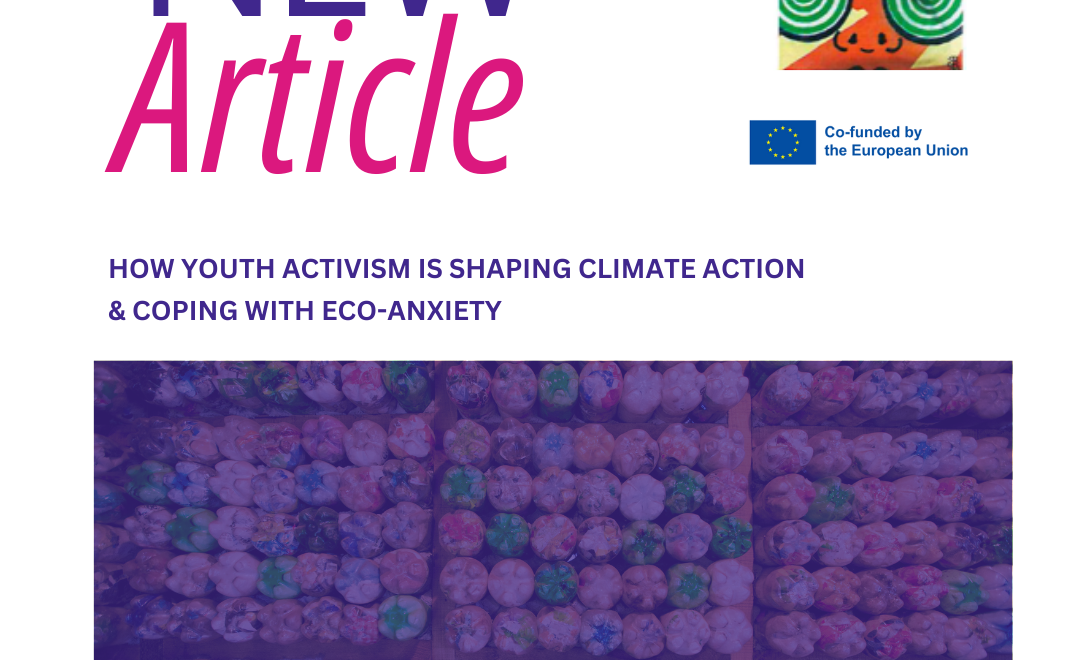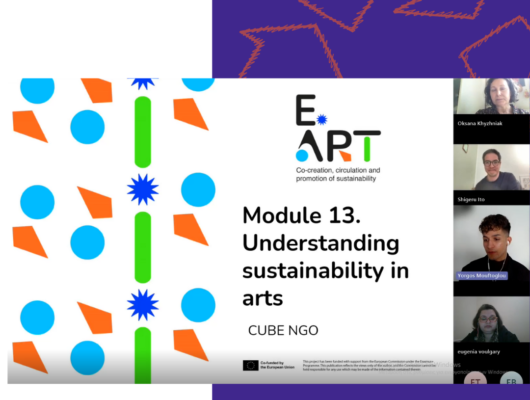Rising Voices: How Youth Activism is Shaping Climate Action and Coping with Eco-Anxiety
With climate change concerns intensifying, a generation of young people is not only grappling with the mental strain of eco-anxiety but is also leading the charge in global climate activism. Confronted with mounting evidence of environmental crisis, young activists are responding with demands for immediate action, determined to hold governments and corporations accountable. From school strikes to international protests, this movement goes far beyond simple demonstrations; it has become a powerful force for change, channeling eco-anxiety into constructive action. These young voices are shaping climate policy and bringing global attention to the urgent need for sustainability. This article delves into how eco-anxiety drives youth activism, highlights the influential leaders of the movement, and examines how activism offers a pathway to empowerment and political change.

Youth activism has gained momentum as young leaders such as Greta Thunberg and Vanessa Nakate command attention on international platforms. Their influence is profound, with millions of young people worldwide seeing them as role models who provide a roadmap for creating change. Through social media, public addresses, and direct appeals to world leaders, they challenge the status quo and inspire peers to demand transparency and accountability in tackling climate issues. These leaders have broadened the climate conversation to encompass justice, equity, and long-term sustainability, pushing for transformative solutions that prioritize future generations. Thunberg’s message, in particular, has emphasized the importance of listening to scientists and facing the crisis head-on, no matter how inconvenient the truth may be. Nakate, with her focus on Africa, highlights how climate justice is not a single-issue fight but one interwoven with issues of racial and economic equity, bringing attention to regions that have contributed the least to climate change but are suffering its worst impacts.
The power of these young leaders extends beyond their public profiles. They have transformed eco-anxiety from a crippling worry into a motivating purpose, reframing fear as something constructive. For young people facing the often overwhelming reality of environmental degradation, seeing these leaders speak out is a reminder that they, too, have a voice. By advocating for change, young people shift from feeling passive despair to realizing their active role in the climate movement. This shift can be a vital component in managing eco-anxiety, which, while distressing, is also a source of motivation for many youths. For them, acting against climate change is not just an expression of concern but a form of resilience, a way to channel their worry into concrete, impactful work.
For many young people, eco-anxiety is more than just a fleeting feeling; it’s a state of mind that permeates their daily lives. As the scale of climate issues continues to grow, many young people experience feelings of helplessness, despair, and frustration. Strikes, protests, and organized climate actions provide a vital outlet for these emotions. Fridays for Future, a movement initiated by Thunberg, has become a model of this activism, drawing millions of young people into organized efforts to demand meaningful environmental action. Leaving school to participate in these strikes is a bold statement, one that signifies the urgency with which they view the climate crisis. These gatherings are often marked by a sense of solidarity and mutual support, where young people share their fears and frustrations and find strength in a community that understands and cares about the same issues.
This solidarity is crucial. For young people, joining these movements is as much about being part of a larger cause as it is about addressing personal feelings of anxiety. Many activists find that community involvement helps alleviate some of the isolation they feel in their concern for the future. They connect with others who share their worries and are willing to stand up against inaction. This shared purpose reduces the weight of eco-anxiety, providing a reminder that, while individual actions might feel small, collective voices can have significant impact. Through activism, young people gain a sense of empowerment, learning that while they can’t control every aspect of the crisis, they can play a part in steering the response to it.
The drive to take action has also extended beyond protests and demonstrations, pushing many young people to engage directly with political processes. Motivated by eco-anxiety and the desire for a secure future, today’s young activists are using their voices to shape policy agendas at local, national, and international levels. This movement is evident in petitions, organized voting drives, and direct conversations with political representatives, where young people advocate for policies that enforce sustainability, reduce carbon emissions, protect natural ecosystems, and uphold intergenerational justice. Their demands focus on long-term accountability, targeting not only government actions but also corporate practices that contribute to environmental degradation. Many young activists seek to dismantle greenwashing efforts by corporations, insisting that companies be transparent in their sustainability efforts and take genuine steps toward reducing their environmental impact.

The impact of youth activism on policy and public discourse is increasingly visible. In local communities, young people push for sustainable city planning, greener public spaces, and reduced single-use plastics. On a global scale, their voices resonate at platforms like the United Nations Climate Change Conferences, where young representatives have brought attention to the ethical dimensions of climate policy, challenging leaders to take bold action. Young people are persistent, ensuring that climate responsibility remains at the forefront of the political agenda and refusing to accept inaction as a response. These efforts have already influenced policy shifts in some regions, indicating that youth activism is not merely performative; it is a force that demands serious consideration.
The connection between eco-anxiety and youth activism reveals a powerful truth: while climate change may induce fear and uncertainty, it can also inspire courage and determination. By transforming their anxiety into activism, young people are not only advocating for a sustainable future but are also forging a community that offers strength, solidarity, and resilience. Together, they are reshaping climate policy, shifting public opinion, and influencing global priorities, demonstrating that eco-anxiety, while painful, can be a catalyst for meaningful change. While the path forward remains uncertain, the dedication of this generation signals a promising shift. Their voices have made it clear that they will not stand by as passive observers; instead, they are actively shaping the course of climate action, ensuring that the future they inherit will be one that prioritizes ecological balance and justice.
If you want to be part of this change, find out more about the European Project here.








